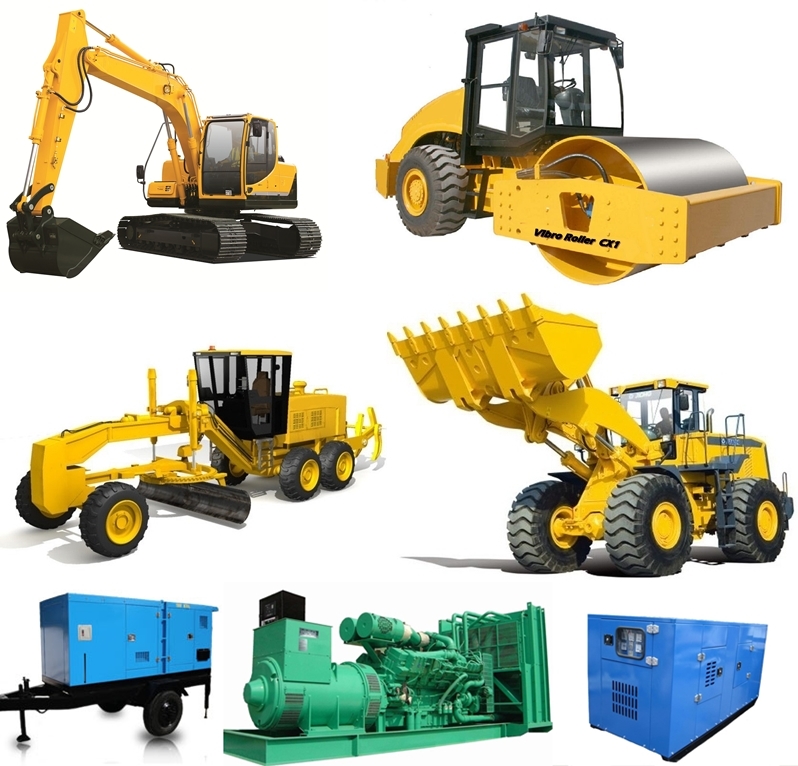Equipment Rental Company: Your Resource for All Kinds Of Equipment
Equipment Rental Company: Your Resource for All Kinds Of Equipment
Blog Article
Maximize Your Budget Plan by Comprehending the Costs Connected With Building Equipment Rentals
Understanding the complete extent of expenses associated with construction tools services is vital for maximizing your budget plan. What techniques can be used to effectively handle these costs and ensure a more effective rental experience?
Overview of Rental Expenses
When taking into consideration building equipment rentals, comprehending the associated expenses is vital for reliable budgeting and task planning. Rental expenses can differ substantially based upon several aspects, including tools type, period of service, and area. The preliminary rental fee commonly reflects the devices's market demand and its associated functional capabilities, influencing the overall expenditure.
In enhancement to the base rental price, secondary costs may arise, such as transport charges, fuel additional charges, and upkeep costs. It is necessary to account for these extra costs to precisely analyze the complete cost of renting equipment. Furthermore, the rental period can affect pricing; longer rentals might get approved for affordable rates, while temporary leasings may sustain greater day-to-day costs.

Breakdown of Rental Rates
A comprehensive understanding of rental rates is crucial for specialists and job supervisors aiming to maximize their spending plans. Rental rates for building and construction equipment generally consist of several parts, consisting of base rates, time-based fees, and use costs.
Base prices are the core charges related to the service of the devices, frequently established by the kind and size of the machinery. These rates can differ significantly, affected by factors such as equipment demand, availability, and local market fads. Time-based fees, which may be daily, weekly, or monthly, serve to suit different task timelines and rental periods.
In addition, rental rates might consist of usage charges, which are applicable when equipment is used past a defined limit, making sure that the rental company can make up deterioration. Seasonal demand changes can likewise impact rental prices, with peak building and construction seasons usually regulating greater prices.
In addition, comprehending the rental firm's plans relating to upkeep and insurance coverage can offer additional understanding into the total price structure. By examining these elements, specialists can make informed decisions, making sure the choice of rental equipment aligns with both job needs and budget constraints.
Extra Charges to Consider
Comprehending the details of additional fees is important for specialists to handle their general service costs properly. Past the typical rental rates, numerous auxiliary charges can considerably affect the overall expense of tools leasing. These costs commonly include shipment and pick-up costs, which can differ based on range and logistics included in delivering the tools to and from the job site.
Additionally, some rental firms might impose fuel additional charges if the devices is returned with much less fuel than when leased. It is also important to be mindful of possible cleansing charges, especially for customized devices that calls for thorough upkeep after usage.

Completely reviewing the rental agreement and clearing up these added fees in advance can aid service providers ensure and prevent unexpected expenses that budgets stay undamaged throughout the project lifecycle.
Upkeep and Repair Service Expenses
Routine maintenance and repair costs are often neglected elements that can substantially affect the general cost of building and construction equipment leasings. When renting equipment, it is important to take into consideration not only the rental costs but likewise the possible prices related to maintaining the equipment in optimal operating condition.
Lots of rental firms consist of basic upkeep as component of the rental agreement; however, more comprehensive repairs or unforeseen failures can bring about additional expenses. It's important to examine the rental agreement meticulously to recognize what upkeep services you could check here are covered and what obligations fall on the tenant.
Additionally, devices that is not well-kept can result in ineffectiveness on duty website, possibly triggering hold-ups and increasing task expenses. To alleviate these dangers, it is recommended to conduct regular inspections and keep open communication with the rental provider pertaining to any kind of concerns that emerge throughout usage.
Insurance Coverage and Obligation Costs
Insurance and obligation expenses are critical elements that can substantially impact the total expense of construction devices rentals (mini excavator rental). These costs guarantee that both the rental firm and the customer are protected from prospective economic losses occurring from mishaps, damage, or burglary during the rental period

Additionally, clients should recognize any deductibles or exclusions in the insurance coverage policy, as these can impact prospective out-of-pocket expenses. Recognizing the terms of any kind of insurance protection is important to stay clear of unanticipated expenses. Eventually, budgeting for insurance coverage and obligation expenditures can aid guarantee a smoother rental experience and safeguard versus economic threats connected with building and construction tasks.
Conclusion
In conclusion, an extensive understanding of the expenses associated with building tools leasings is crucial for efficient spending plan monitoring. Inevitably, notified decision-making relating to tools services contributes to the total success of construction undertakings.
Rental costs can vary dramatically based on a number of factors, consisting of devices type, duration of leasing, and place (forklift rental). The rental duration can influence rates; longer rentals might qualify for affordable rates, while temporary rentals could important site sustain higher everyday costs
By performing thorough research and involving with respectable rental companies, specialists can efficiently browse the intricacies of rental pricing, eventually right here maximizing their economic resources.
Beyond the standard rental prices, various auxiliary costs can significantly impact the overall price of equipment leasing. Rental firms frequently supply responsibility insurance that covers injuries to 3rd events or damage to property, while equipment damage insurance coverage can cover the expense of repair services or replacement if the leased tools is harmed.
Report this page